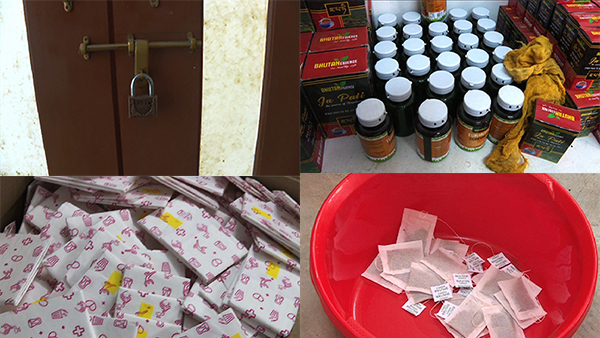 The country’s Startup sector has been feeling the crippling impacts of the COVID-19 pandemic, with many struggling to stay in business.
The country’s Startup sector has been feeling the crippling impacts of the COVID-19 pandemic, with many struggling to stay in business.
The coronavirus pandemic has had a major impact on various economic sectors in the country.
The startups that depend on raw materials from outside the country have been affected the most.
Majority of the startups at the Startup centre in Changzamtog, Thimphu are closed and only few of them are currently operating there.
Among the ones currently operational are startups manufacturing products with raw materials sourced from within the country or those that have stockpiled their materials. The operational ones also include startups that have diversified their business to stay afloat.
Bhutan Essence, a tea production and packaging business, at the Startup centre has diversified its business by venturing into drying vegetables, fruits and herbs.
Dawa Tshering, the founder, said that one of their main raw materials – tealeaves – is sourced from Siliguru, India. These raw materials have been stranded in India for over a month following the lockdown.
“We only have around Nu. 60,000 worth of products. We have exhausted our raw material stock and have not been able to continue production as we couldn’t bring in raw materials,” he said.
Bhutan Essence has three employees, who come from economically disadvantaged background. “I can’t lay them off,” said Dawa Tshering.
He said that since the government is promoting vegetable production and many people across the country are taking it up, this might result in farmers not being able to sell all their produce. “So by drying vegetables, fruits and herbs, we can ensure farmers produce do not go to waste and make dried vegetables available post harvest season.”
Another Startup, Chechay Sanitary Pads, has stocked up raw materials to last for two months. However, the firm is worried that its production and business will be affected if the lockdown in India continues.
Pema Chezom, the founder of Chechay Sanitary Pads, said that the government has identified sanitary pads as an essential item and their products are being supplied to the quarantine centres.
Currently, there are 28 startup businesses registered at the Startup centre in Changzamtog.
The Department of Cottage and Small Industry said that the government in collaboration with the Central Bank and other financial institutions recently launched soft working capital loans to support industries dependent on imported raw materials.
The loans will support a one-month import of raw materials for export-oriented industries and a three-month import of raw materials for industries catering to the domestic market.
The Department said that the government will be assisting cottage and small industries in importing raw materials from India through bilateral arrangements.
The Department also said that rent at the startup centre is very nominal and has already been waived for six months.
The Department will also continue to help promote locally produced products in the market.
Samten Dolkar












